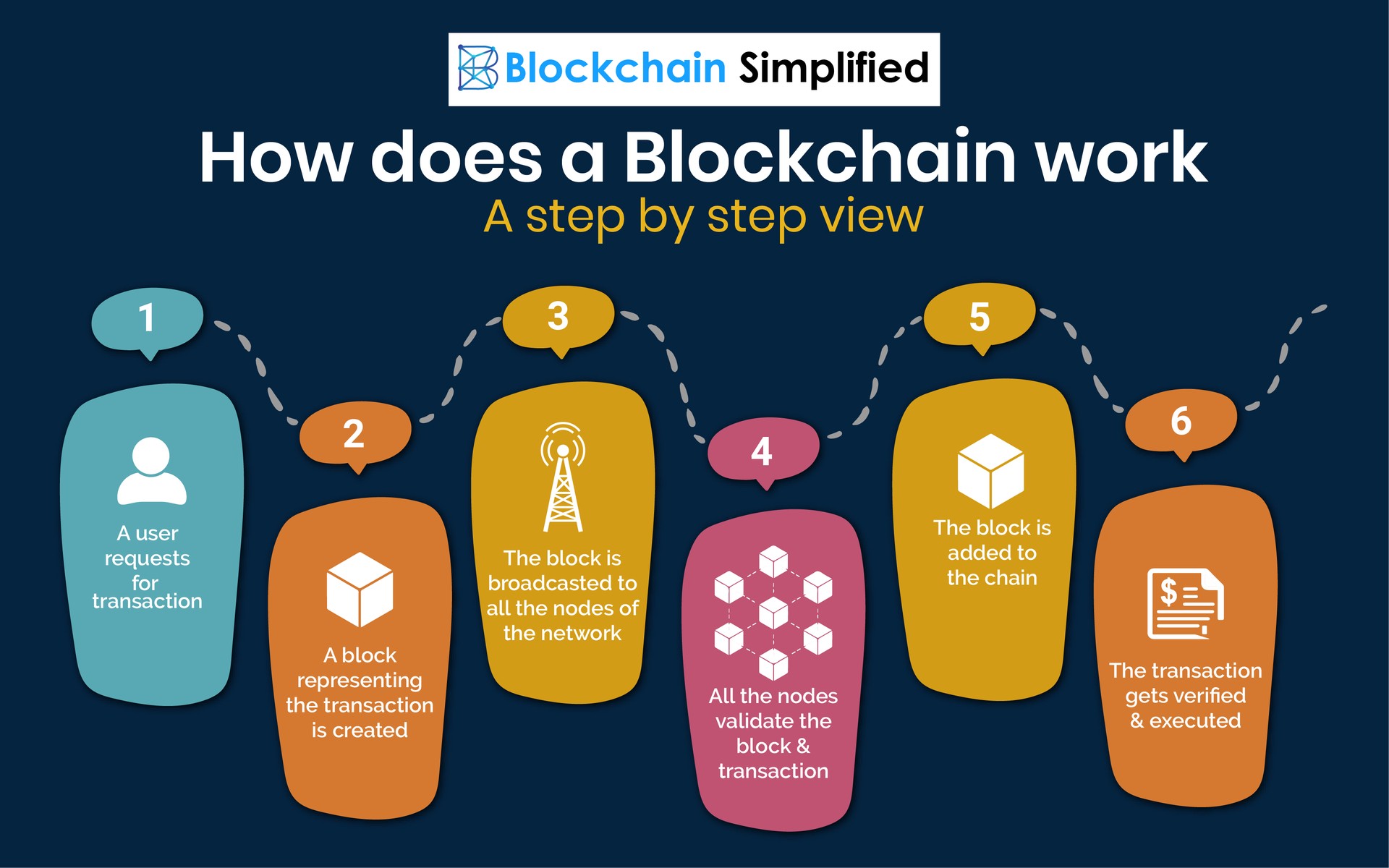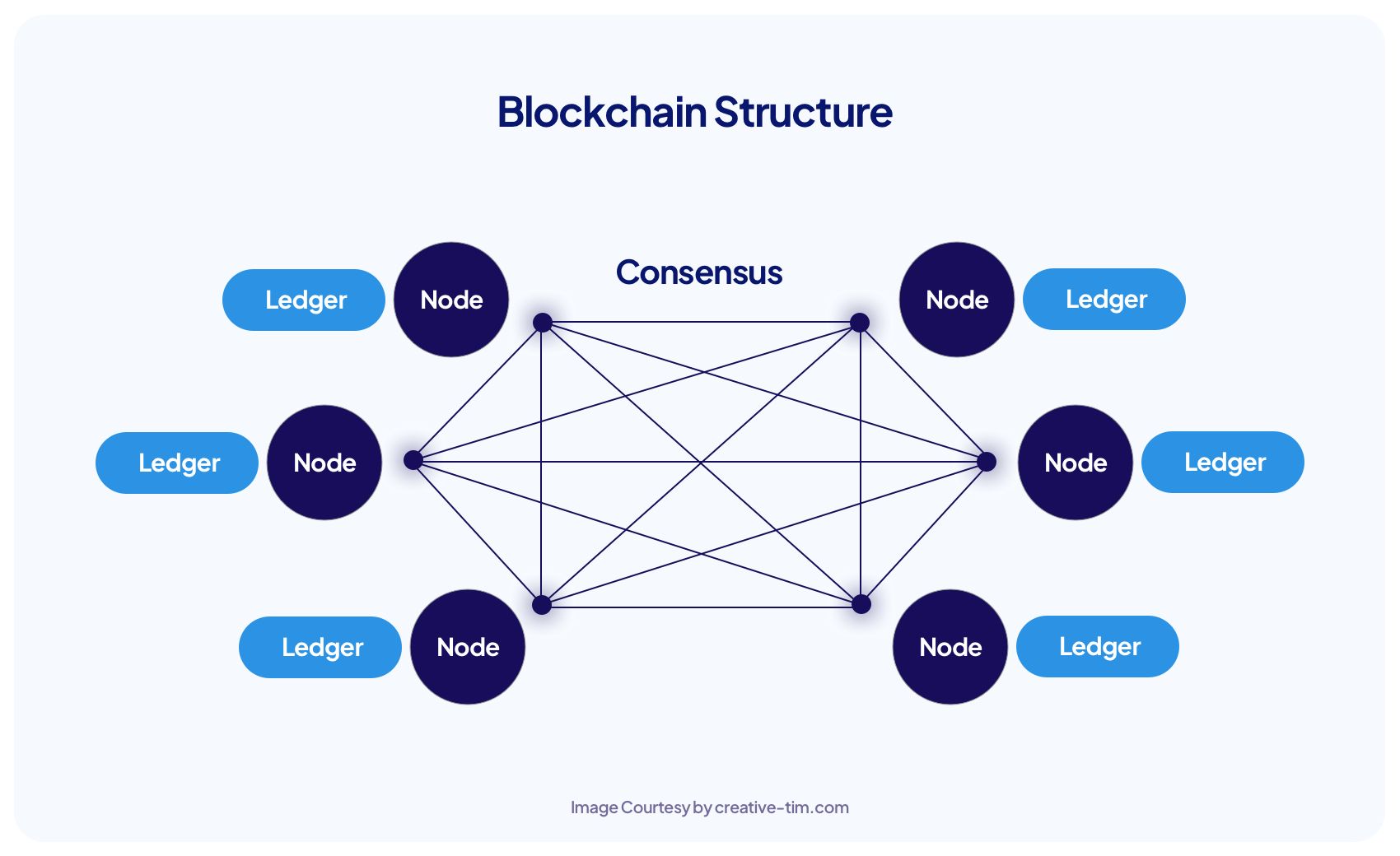The Blockchain Revolution: How A Decentralized Network Is Redefining The Future Of Internet Technology
The internet as we know it today is on the cusp of a revolution. A revolution that promises to transform the way we think about data, security, and the very fabric of the internet itself. At the heart of this revolution is a technology that has been gaining momentum over the past decade: blockchain. But what exactly is blockchain, and how is it poised to change the future of internet technology?
Blockchain is a decentralized, digital ledger that records transactions across a network of computers. It's the underlying technology behind cryptocurrencies like Bitcoin and Ethereum, but its potential applications go far beyond digital currency. From secure voting systems to supply chain management, blockchain has the potential to transform industries and revolutionize the way we live and work.
So, what makes blockchain so special? For starters, it's decentralized. Unlike traditional databases, which are controlled by a single entity, blockchain is maintained by a network of computers. This means that data is distributed across the network, making it much harder to manipulate or alter. It also makes it more resilient, as if one computer were to fail, the network could still function.
Another key feature of blockchain is its use of cryptography. Each block of transactions is linked to the previous one through a unique code, creating a permanent and unalterable record. This code, known as a "hash," is what makes blockchain so secure. It's virtually impossible to alter a block of transactions once it's been recorded, as the hash would no longer match.
But blockchain is more than just a secure way to record transactions. It's also a powerful tool for creating new business models and opportunities. For example, blockchain-based supply chain management systems can help companies track the origin and movement of goods, reducing the risk of counterfeiting and improving efficiency.
What Are The Benefits Of Blockchain?
So, what are the benefits of blockchain? Here are just a few:
- Security: Blockchain's use of cryptography and decentralized network makes it virtually impossible to manipulate or alter data.
- Transparency: All transactions are recorded on a public ledger, providing a clear and transparent record of activity.
- Efficiency: Blockchain-based systems can automate many processes, reducing the need for intermediaries and improving efficiency.
- Scalability: Blockchain technology is highly scalable, making it suitable for use in a wide range of applications.
- Interoperability: Blockchain technology allows different systems to communicate with each other, enabling seamless data exchange.

How Does Blockchain Work?
So, how does blockchain work? Here's a step-by-step guide:
- Transactions: A user initiates a transaction, such as sending cryptocurrency or data.
- Verification: The transaction is verified by nodes on the network, ensuring that it's valid and follows the rules of the network.
- Block creation: A group of verified transactions is collected into a block.
- Block hash: The block is given a unique code, known as a hash, which links it to the previous block.
- Network update: The network is updated with the new block, and the cycle repeats.
Applications Of Blockchain
Blockchain has the potential to transform a wide range of industries, from finance to healthcare. Here are just a few examples:
- Cryptocurrencies: Blockchain is the underlying technology behind cryptocurrencies like Bitcoin and Ethereum.
- Supply chain management: Blockchain-based systems can help companies track the origin and movement of goods, reducing the risk of counterfeiting and improving efficiency.
- Voting systems: Blockchain-based voting systems can provide a secure and transparent way to vote, reducing the risk of tampering and improving voter confidence.
- Healthcare: Blockchain can be used to securely store and manage medical records, improving the accuracy and availability of medical information.
- Identity verification: Blockchain can be used to securely store and manage identities, improving the accuracy and availability of identity verification.
Challenges And Limitations
While blockchain has the potential to revolutionize the future of internet technology, it's not without its challenges and limitations. Here are just a few:
- Scalability: Blockchain technology is still in its early stages, and scalability is a major challenge.
- Regulation: The regulatory landscape for blockchain is still evolving, and it's unclear what rules and laws will apply.
- Interoperability: While blockchain technology allows different systems to communicate with each other, there are still significant interoperability challenges to overcome.
- Adoption: While blockchain has the potential to transform a wide range of industries, adoption is still a major challenge.
- Security: While blockchain's use of cryptography and decentralized network makes it secure, it's not immune to security risks and attacks.

The Future Of Blockchain
So, what's the future of blockchain? Here are just a few predictions:
- Widespread adoption: Blockchain technology is expected to become increasingly widespread, transforming a wide range of industries and applications.
- Improved scalability: Blockchain technology is expected to become more scalable, enabling it to support a wide range of use cases.
- Increased regulation: The regulatory landscape for blockchain is expected to become more clear, providing a framework for its use.
- Greater adoption of AI: Blockchain technology is expected to become increasingly integrated with artificial intelligence, enabling more sophisticated and automated applications.
- Increased focus on security: The security of blockchain technology is expected to become a major focus, with increased investment in security measures and protocols.
Conclusion
The future of internet technology is looking bright, and blockchain is at the forefront of this revolution. With its decentralized, secure, and transparent nature, blockchain has the potential to transform a wide range of industries and applications. While there are still challenges and limitations to overcome, the potential benefits of blockchain make it an exciting and promising technology for the future.
Raiders Owner
Lyra Crow Fans
Randy Castillo
Article Recommendations
- Did Karla Homolka Parents Forgive Her
- Bobbi Althoffd
- Michael Boulos Net Worth
- Vanessa Bryant Weight Loss
- Donna Brazile Wife
- Jodieer Bf
- Karan Johar Wife
- Tia Kemp Kids With Rick Ross
- Billy Ray Cyrus Billy Ray Cyrus
- Strongnough Jonas Brothers

